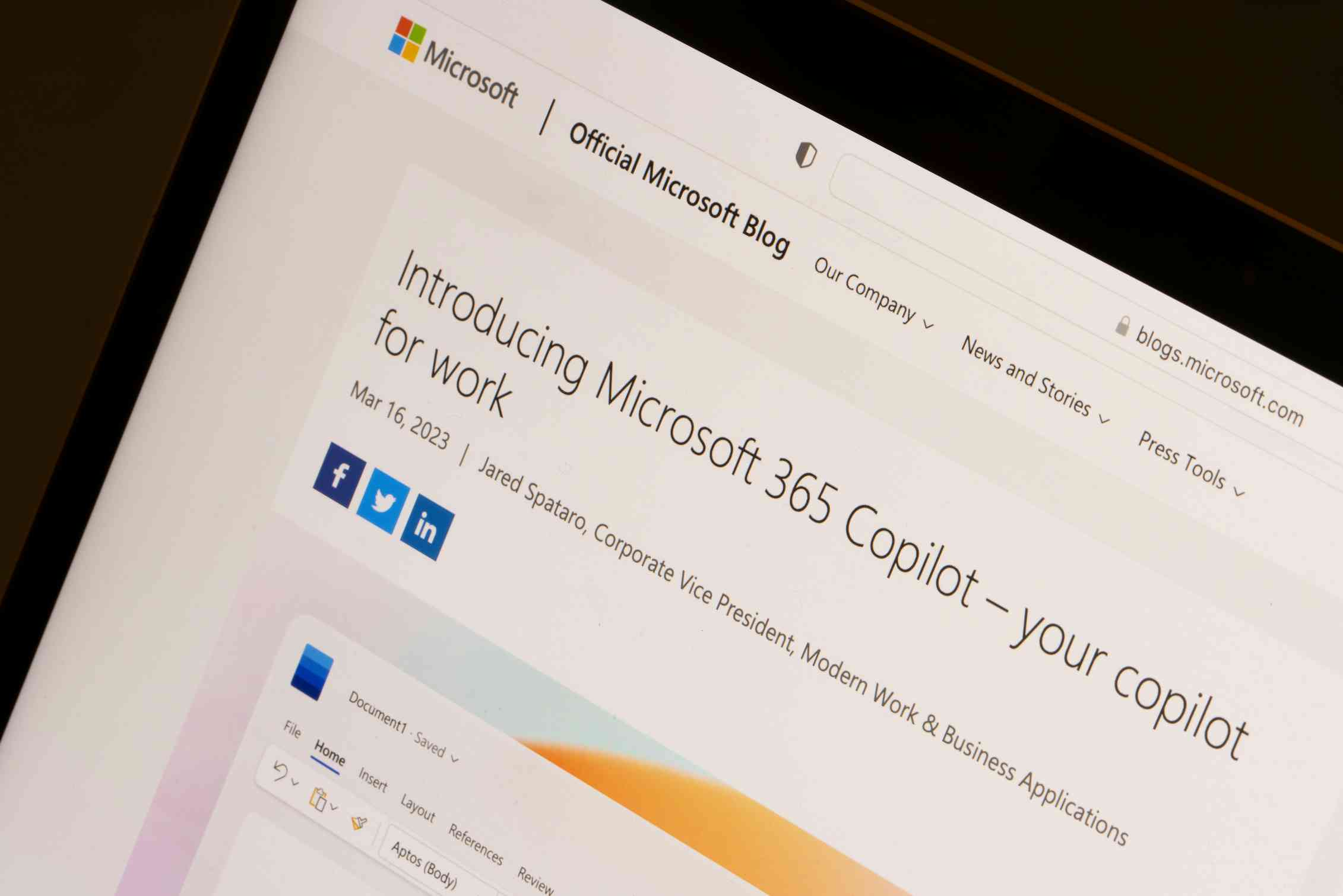
Overview
Google and Microsoft are trying to make computing easier by adding new AI features to their services.
Microsoft announced on March 16 that it will add an AI-powered system called Copilot to its 365 programs, including Word, Excel, PowerPoint, Outlook, and Teams. The announcement comes only two days after Google released a blog describing its aspirations to integrate AI into Workspace applications including Docs, Sheets, Slides, Meet, and Chat.
Millions of individuals use these applications on a daily basis. As long as security is not an afterthought, bolstering them with AI might deliver a significant productivity increase.
By applying deep-learning algorithms to large amounts of data, generative AI allows people to generate new content. ChatGPT and DALL-E, among others, have already swept the globe.
Microsoft and Google have now developed a more specific method of bringing generative AI into our offices and schools.
Copilot and Workspace AI, like other generative AI tools, are based on large language models (LLM) that have been trained on vast quantities of data. The systems have learned a lot of rules and patterns that can be used in new situations.
Copilot
The Copilot app will be integrated throughout 365 apps to speed up repetitive or time-consuming tasks. For example, it will:
- assist users in writing, editing, and summarizing Word documents
- create comprehensive PowerPoint presentations from thoughts or summaries
- identify data trends in Excel and quickly create visualizations
- Organize and manage your Outlook mailbox
- offer team meeting reports in real time
- integrate data from papers, presentations, emails, calendars, notes, and contacts to help create emails and summarize chats
Provided it completes these duties successfully, Copilot will be a significant improvement over Microsoft’s initial Office Assistant, Clippy.
For paid members, Google’s Workspace AI will provide comparable features.
Copilot is a “complex processing and orchestration engine operating behind the scenes to combine the capabilities of LLMs, notably GPT-4,” according to Microsoft.
Google Workspace AI
Google Workspace AI is a type of AI that uses a special type of learning called PaLM. It learned from reading, Wikipedia, news stories, source codes, filtered webpages, and social media interactions.
Both technologies use cloud technology to store and share data. To use them, all you need to do is fill in the details needed. They are ready to use.
In order to give contextualized replies, the tools will require complete access to the relevant material. Copilot, for example, cannot reduce a 16-page Word document to one page of bullet points without first evaluating the content.
Will The Data That Users Give to the Computer Help Train the Models?
Microsoft says the computer systems used by Copilot do not know what customers want and need.
“Private data is kept private and isn’t used in the training data for the larger model”. This is what Google says.
Based on these assumptions, the 16-page material will not be used to train the algorithms. Instead, Copilot and Workspace AI will process the data in real time.
People are rushing to build AI tools so that they can use them to help solve real-world problems. But, for now, they are keeping this information secret.
Many people criticized ChatGPT, a text-based AI technology, for having biases in its algorithms. These issues will apply to Google and Microsoft’s new technologies.
Generative AI systems are susceptible to errors and biases. Microsoft’s chatbot was criticized for inaccurate information in 2017. It can cause bias when data is handled without careful selection and interpretation.
The most information you can find is in English by people who are making AI systems. This inherent bias may impact how AI-powered systems understand and mimic writing style and linguistic patterns.
For the time being, it’s difficult to determine exactly how bias concerns would manifest in Copilot or Workspace AI; for example, the systems may simply not operate as well for people in non-English-speaking nations or with different styles of English.
Cybercriminals/Hackers
One significant flaw in Microsoft and Google’s AI technologies is that they may make it much simpler for fraudsters to suck victims dry.
Formerly, a thief might have had to go through hundreds of files or emails to uncover specific data; now, they can utilize AI-assisted features to swiftly collate and extract what they want.
To use these systems, people will have to make copies of the files. Data posted online is more vulnerable to compromise than data saved alone on your computer or phone.
Lastly, from the standpoint of privacy, it is uninspiring to see yet more way via which the world’s largest firms may gather and synthesize our data.
